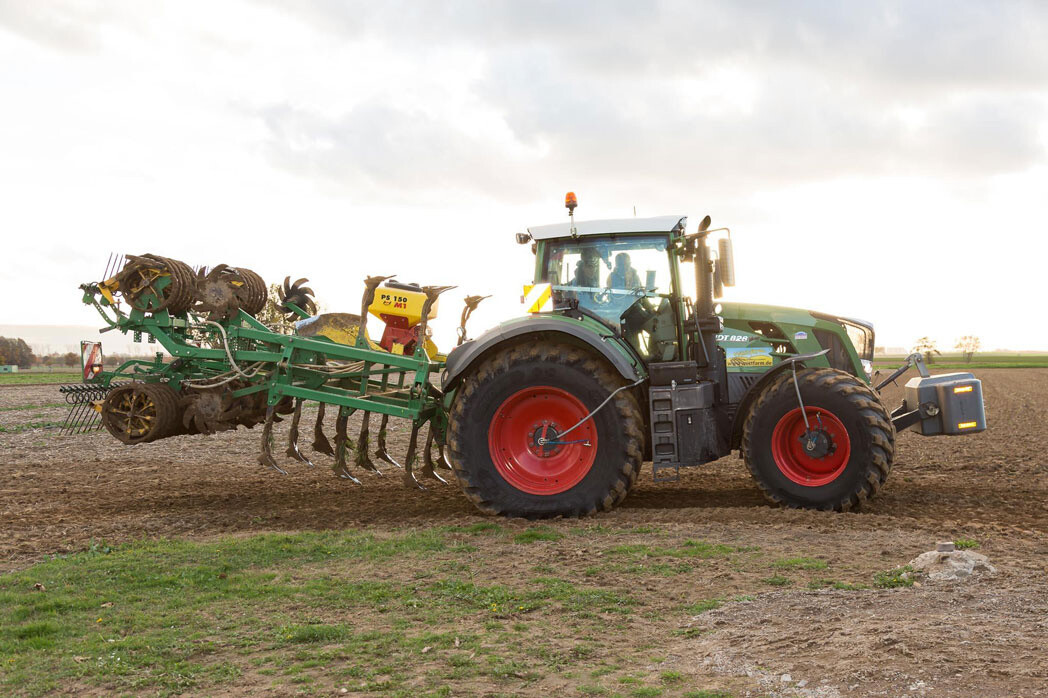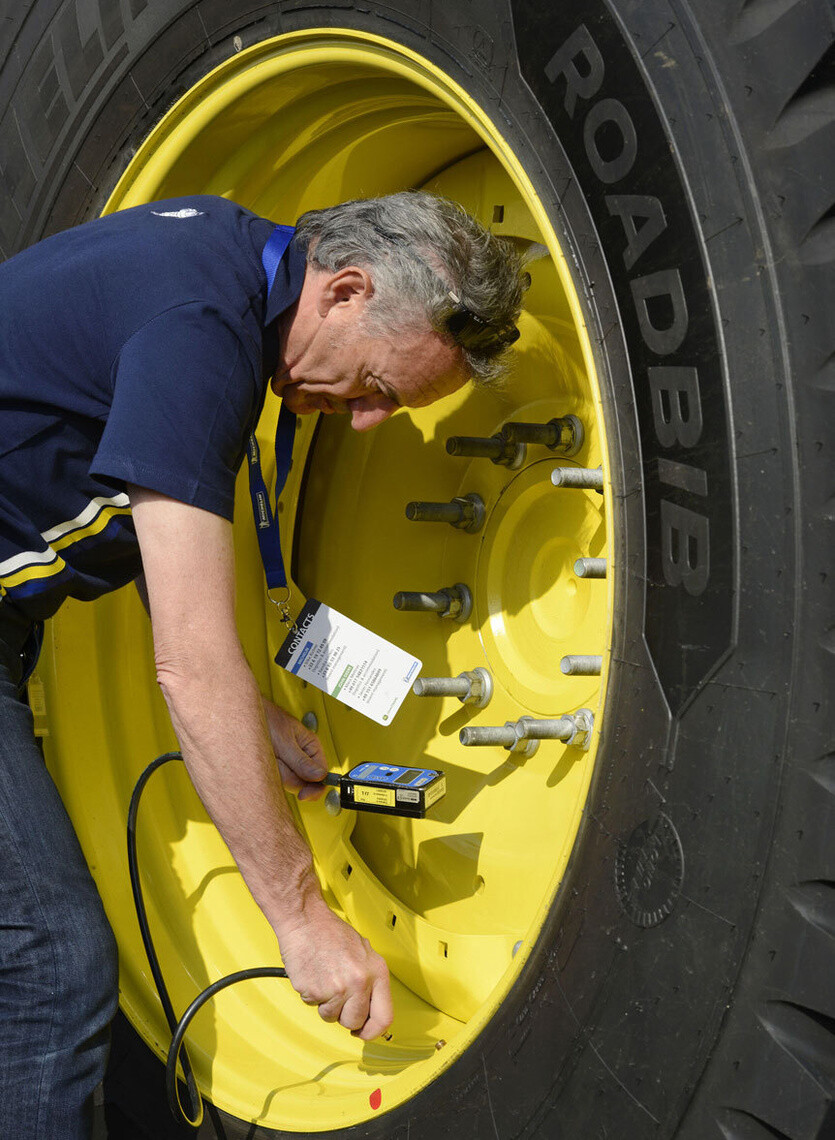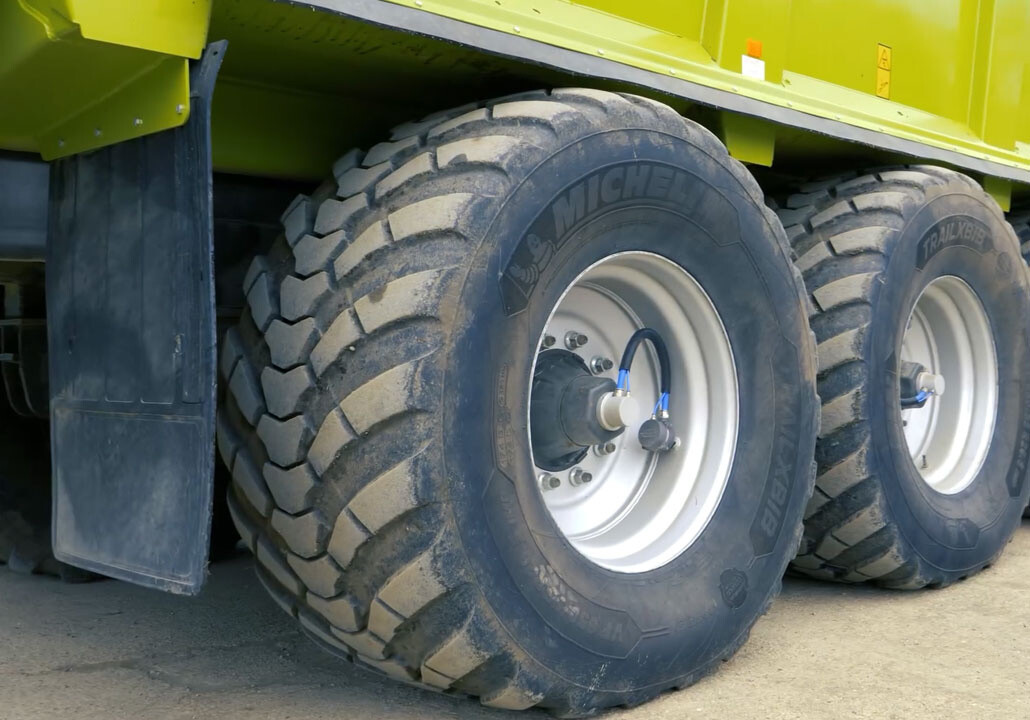
Tractor tires pressure automatic or manual
Tractor tire pressure: should you opt for automatic management (CTIS)?
We often mention tractor tire pressure because it's crucial to your activity. When it is adjusted to meet the performance and terrain needs, it saves fuel, limits soil compaction and prevents the tires from excessive slippage. Today, there are systems that allow you to adjust it automatically. So, when should you make the investment in an automatic system? Let our experts provide some answers.
SUMMARY:
The importance of tractor tire pressure
Fitting a CTIS (Central Tire Inflation System) means that tire pressure can be managed automatically from the tractor cab. Opting for such a system can be a good idea, because it makes pressure management easier and more convenient. But you should also be aware of the importance of having the right tractor tire pressure.
If you equip your tractor with a CTIS and don't apply the right pressure, you'll have made an investment in this tool without enjoying the benefits it can bring. But if you have the right tractor tire pressure in the field, you can work while protecting the soil and with adapted traction.
By adjusting tire pressure to preserve soil and enhance traction, you can have a major impact on your yield. Working in the field with low-pressure tires, particularly tires with Michelin UltraFlex technology, can increase agricultural yields from 2 to 6%.*
Another advantage of applying the right tractor tire pressure is that your tires will wear less and more evenly, supporting their longevity. Your fuel consumption on the road should adapt as well. The fuel savings may not be obvious on a day-to-day basis, but they become noticeable over the year.
Should you opt for a CTIS to manage your tractor tire pressure?
The main advantage of a CTIS (Central Tire Inflation System) is the comfort and ease of tire pressure management.
With this tool, you can adjust it for the field as well as for the road, without leaving your cab. This can be very practical when you have to change pressure several times a day.
In some cases, however, it may be questionable whether this is a wise choice. Particularly in the following cases:

Tractor equipped to automatically change tire pressure for the field.
If you have a small farm
It is important to assess the return on investment of a CTIS (Central Tire Inflation System), bearing in mind that it will pay for itself quicker on a larger farm than on a smaller one.
If you don't drive on roads
Some farmers do not travel on roads to reach their plots. Driving on paths at low speed will not require tractor tire pressures to be adjusted as often as when driving on the road. The installation of a CTIS, in this case, would not be as necessary.
If you don't think the investment is worth it, you can still adjust your tire pressure manually. The important thing is that the pressure should always be adapted to your load and speed to avoid any risk of overloading.

Man checking the tire pressure on a Roadbib tractor tire
Is remote inflation fully automatic?
No, CTIS is not a fully automatic system. "Semi-automatic" would be a more appropriate term, as CTIS does not “guess” the optimum ag tire pressures based on axle load, nor does it apply them without your intervention.
Maybe one day it will be able to handle the adjustments on its own! But in the meantime, its role is to facilitate tire pressure changes by enabling you to trigger them from your tractor cab as soon as there is a change of configuration (type of terrain, implement, etc.).
When the CTIS is installed, the technician can configure it to suit your needs by calculating the optimum tire pressures based on the farm equipment you use, the trailers you tow and the terrain you travel on, and then enter those air pressures into the control panel.
Then, all you have to do is select the pressure according to your use and apply it. The system is a bit like the programmed buttons on a radio that give you direct access to each of your favorite stations.
For example, if you switch to a configuration with a plow in a field, you select the corresponding tractor tire pressure and the CTIS will adjust the pressure in your tires accordingly.
Is the CTIS also compatible with farm trailer tires?
There are CTIS systems that allow you to control the pressure of both tractor and farm trailer tires from your cab. This is to avoid finding yourself in the situation where, in the field, your trailer tires are over-inflated compared with your tractor tires, thereby accentuating soil compaction when your tractor tires would have reacted differently

Farm trailer and tractor tire pressure management with a CTIS
Find out more about CTIS
Need more advice? Discover our tire pressure guide
*A study carried out by Harper Adams University in the UK from 2013 to 2017, demonstrates that MICHELIN ULTRAFLEX technology increases agronomic yields from 2 to 6%. These results are confirmed by similar studies carried out in the United States (Illinois) in 2015 and Brazil (Mato Grosso) from 2018 to 2021.




